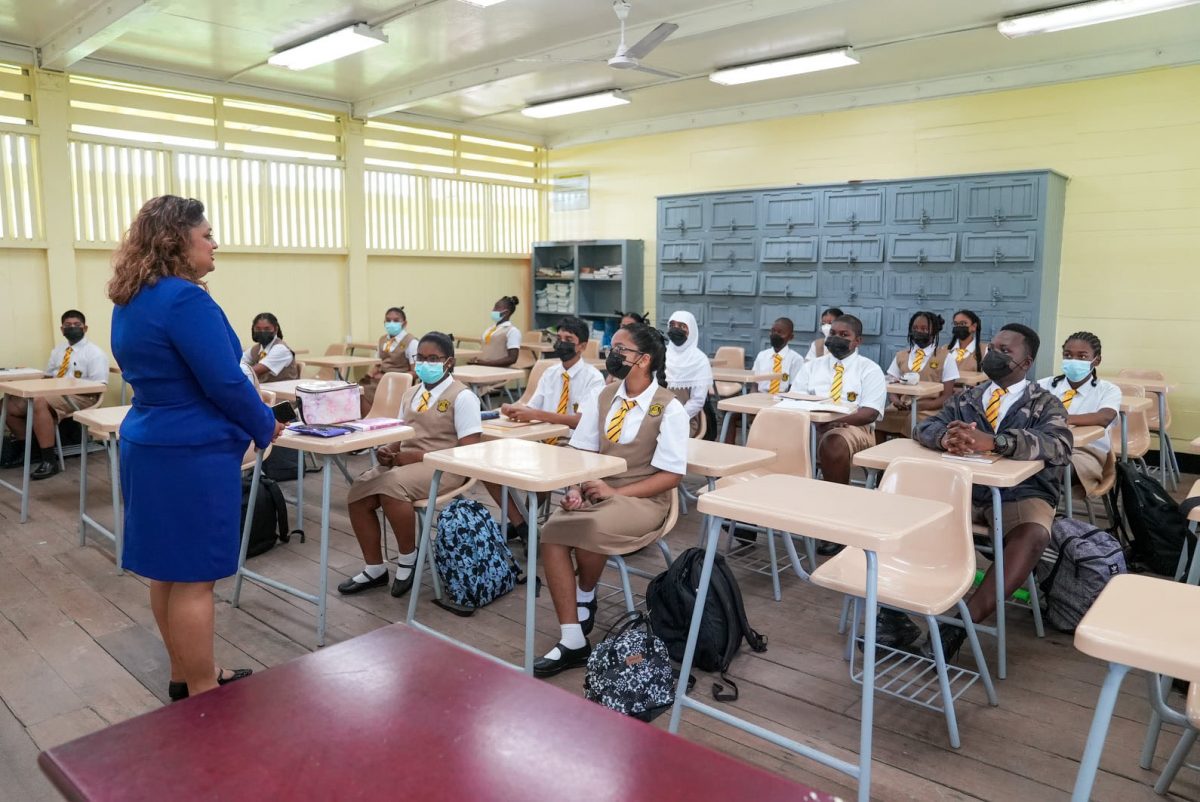The Ministry of Education (MoE) yesterday announced that schools may have to remain open during the July/August vacation period in order to address the learning loss incurred by children who were forced to be away from school for almost two years due to the coronavirus pandemic.
A press release on the MoE’s Facebook page showed students returning in full yesterday with Grade Seven and Year One Nursery pupils turning out for their first day of classes. The release noted that it was the MoE’s decision to have a phased reopening with the other grades having returned to school on April 25th and April 28th.
The release pointed out however, that the Minister of Education, Priya Manickchand, on visiting schools yesterday to see how students, teachers, and staff were coping, observed that the students’ education had been significantly impacted by the effects of the pandemic and as such, steps are now being considered to get children back on track with their schooling.
Manickchand said that she noticed that parents have not fully realised the impact that school closures have had on children. “We have to find ways to ensure that these children get exposed to the hours of education that they need, that we have parents that are interested and their attitudes are right. We may have to work into July/August.”
Many parents however, did not share the same views as the minister with some responding that ‘All work and no play makes Jack a dull boy’. Several also opined that without the school break, their children’s mental health would be affected.
A number of teachers too, expressed their disagreement with schools remaining open for July and August. One teacher remarked, “This is a ridiculous move. Has anyone considered the mental state of teachers? Do they know why vacations are given?”
The minister explained that through the diagnostic assessments that were conducted, teachers were able to determine the children’s progress so far so that they know how to engage them in the classroom. She added that the ministry has produced a consolidated curriculum to have students exposed to what they would have learnt in their previous year.
She said that the forty weeks engagement will see the first twenty weeks being dedicated to content students should have covered in their previous class, while the remaining twenty weeks will focus on what they should be learning in their current grade.
“Those changes are necessary if we’re not to be suffering from the effects of COVID five years from now. What we have seen academically is worrying and parents need to pay attention to what we are asking of them so that they can make sure their children are benefitting from the kind of accelerated learning that we need at this stage,” Manickchand emphasized.





